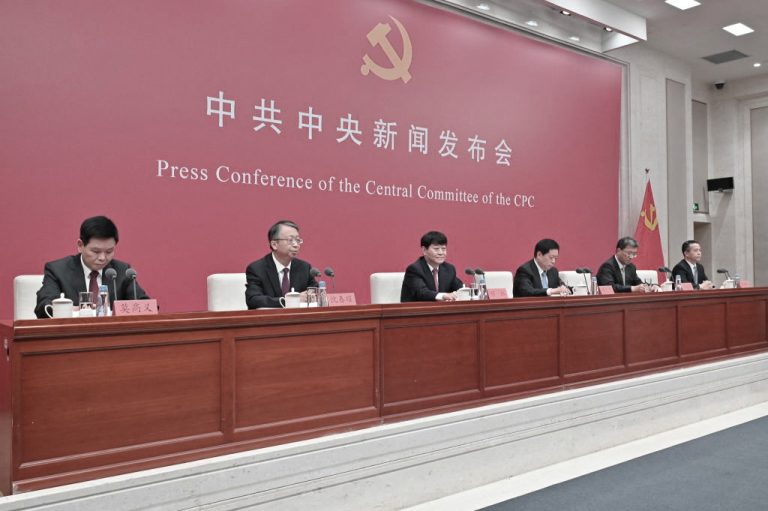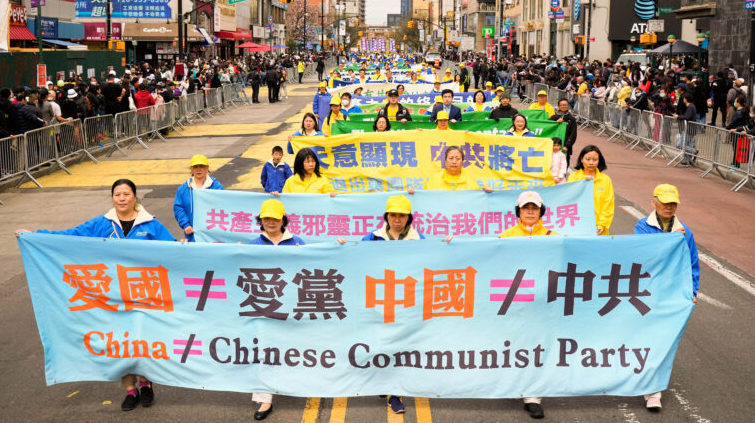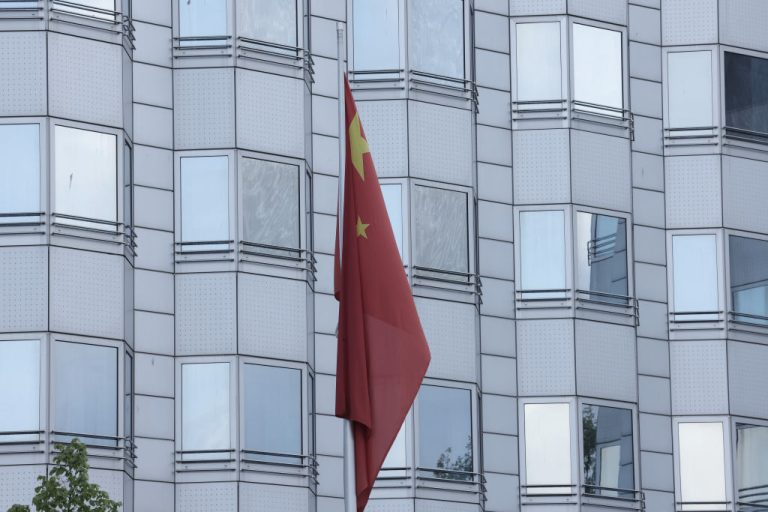On July 15, the Chinese Communist Party (CCP) held a top-level meeting to advocate for policies that communist leader Xi Jinping claims will enhance China’s technological might and national security amidst economic tensions.
After the meeting ended on July 18, a brief statement read, “The current and future period is a critical time for comprehensively promoting the construction of a strong country and the great cause of national rejuvenation using Chinese-style modernisation.”
With tasks scheduled to be completed by 2029, the 80th anniversary of the founding of the People’s Republic of China (PRC), Beijing aims to “coordinate development and security”, adding that “national security is an important foundation for the steady and long-term development of Chinese-style modernization.”
Xi Jinping’s requests for “high-quality development,” were also endorsed, hinting at Beijing’s efforts to fund technologies and entice companies to enhance their equipment and knowledge.
The meeting also addressed disciplinary actions against former high-ranking officials. Former Foreign Minister Qin Gang was removed from a top party position, and investigations were approved for three former military officials.
Success
You are now signed up for our newsletter
Success
Check your email to complete sign up
The former defense minister, Li Shangfu, was found guilty of corruption and dismissed last year. Two other high-ranking military officials were also dismissed for unspecified disciplinary violations.
The sudden removal of top officials in the foreign and defense ministries caused speculation but has not significantly impacted government policies.
The meeting was one of three in China’s history; a plenum session held once every five years, attended by around 300 “full and alternate members” of the Central Committee to discuss policies for the country’s future “for the next five to 10 years,” Radio Free Asia (RFA) wrote.
The latest meeting was supposed to be held last autumn, only to be postponed to July without explanation.
READ MORE:
- Beijing’s Top Officials to Address Economic Crises at China’s Third Plenum: What’s at Stake
- US State Department Vows Action Against Communist China’s Persecution of Falun Gong
- Sellers Left Struggling to Make Ends Meet in China’s E-Commerce Price War
Economic pitfalls
China’s economic problems include a slump in its real estate sector, along with lowering consumer confidence in the wake of the country’s recovery from the COVID-19 pandemic, among other issues.
The communist government acknowledged public concerns about economic hardships, promising to focus on improving people’s lives and addressing their most pressing needs to boost consumer confidence and drive economic recovery.
Such improvements, on their face, are intended to fix income distribution, job markets, social security and the medical system. However, no specific strategies were tabled.
The Chinese government also acknowledged the need to address risks in the property market and other economic threats but offered no specific solutions.
Another major challenge is the financial crisis facing local governments. Heavy borrowing by property developers, now restricted, had been a significant source of tax revenue. This has left local authorities struggling with substantial debt.
“High debt levels plus increasing deflationary pressures eventually could result in a Japan-style… low growth and very low inflation,” scenario said Julian Evans-Pritchard, head of China economics at Capital Economics.
Chinese leaders have claimed to be open to foreign investment, despite communist control over companies, regulations and media. They have also pressed for open markets, but have stressed to be careful of “ideological risks.”
Evans-Pritchard believes that the meetings would do little for policies, citing conflicting goals within the government; with policies prioritizing economic security and supply-side growth against those favoring market forces and consumer-driven growth.







